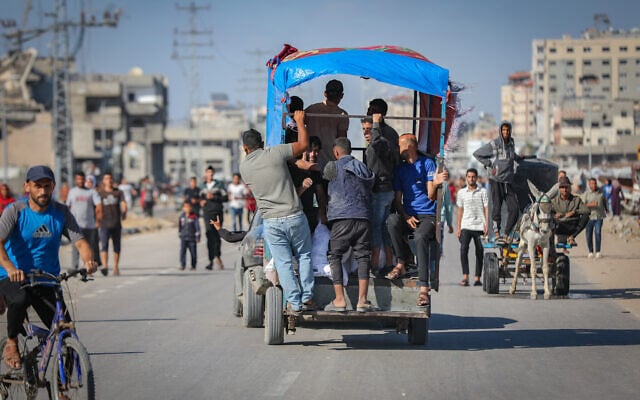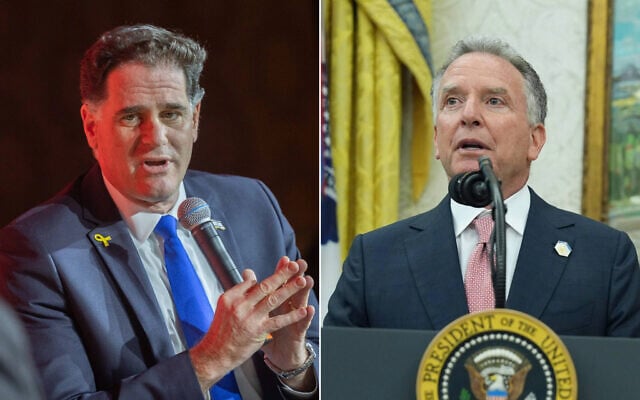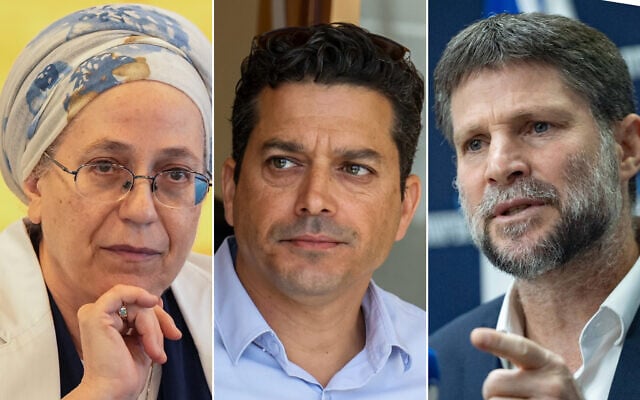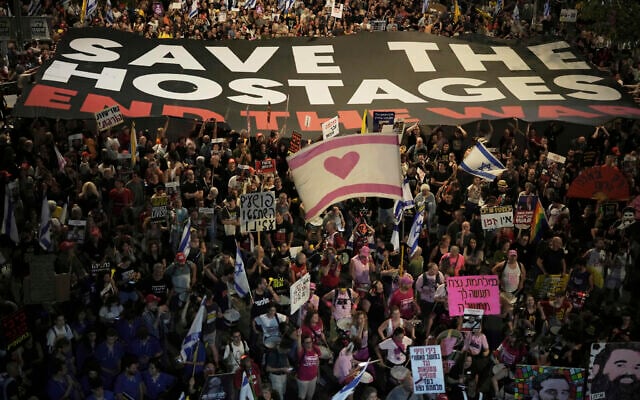


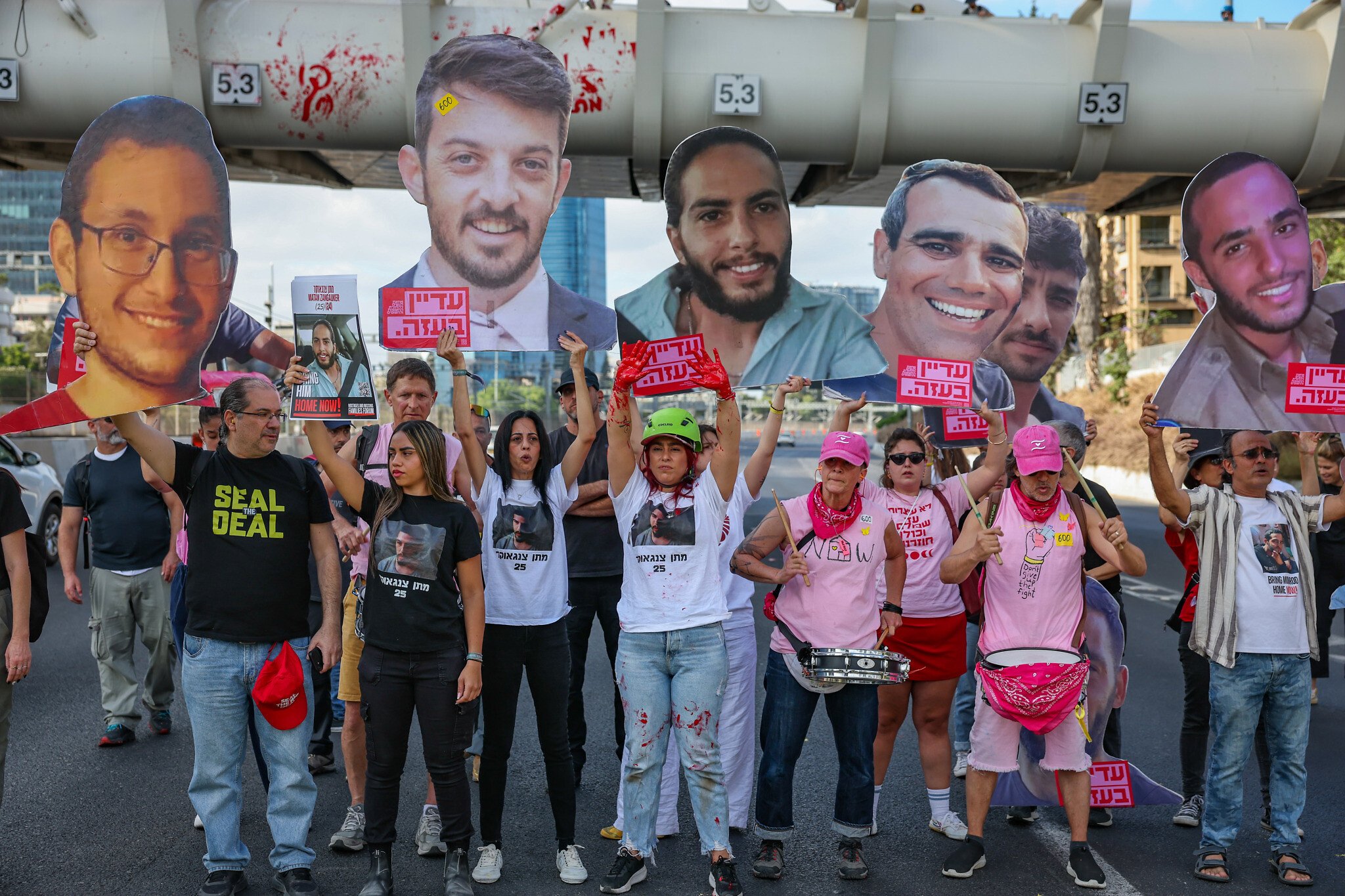
The new proposal from US special envoy Steve Witkoff for a deal between Israel and the Hamas terror group would see the release of 10 living Israeli hostages held in Gaza and the return of the bodies of 18 deceased hostages, in exchange for a 60-day ceasefire, an Israeli official confirmed to The Times of Israel on Thursday.
The confirmation came as right-wing ministers, and some hawkish hostage families, came out in opposition to the proposed deal, arguing that Hamas is weakened and now is the time to force the terror group to surrender.
As part of the US proposal, the United Nations would resume providing humanitarian aid to the Palestinians, in place of the new Israeli mechanism that started operating this week, the Israeli official said. The UN has declined to cooperate with the new mechanism, saying it is insufficient to address the needs of Gaza’s civilian population, and allows Israel to weaponize the food supply.
The text of Witkoff’s proposed agreement will not include an Israeli promise to end the war, according to the Israeli official.
This had until now been the major sticking point, with Israel insisting any ceasefire would be temporary and Hamas insisting on a permanent end to the fighting. The previous hostage-ceasefire deal collapsed when Israel declined to move forward with talks to end the war.
The pan-Arab channel Al Ghad reported Thursday that the outline was submitted overnight to both Hamas and Israel, and that it calls for half of the agreed-upon number of hostages to be released on the first day of the truce, and the other half on the seventh day.
In return, Israel would release 125 Palestinian terror convicts serving life sentences, 1,111 Gazans detained since the start of the war on October 7, 2023, and 180 bodies of Palestinians currently held by Israel, according to Al Ghad.
The Arab channel also reported that the proposal contains an American guarantee that negotiations would continue throughout the ceasefire until a permanent ceasefire is reached.
On Wednesday, Hamas said it had reached an agreement with Witkoff on a “general framework” for a ceasefire deal and now awaited a “final response.”
The group claimed that the framework it had approved would secure a “permanent ceasefire,” the complete withdrawal of Israeli forces from Gaza, the flow of humanitarian aid, and a committee of independent Palestinian technocrats assuming governing control over the Strip instead of Hamas.
On Thursday, the same Israeli official told The Times of Israel that a Washington meeting earlier this week between Witkoff and Strategic Affairs Minister Ron Dermer on the hostage issue and on Iran was “uneasy,” saying Witkoff was getting impatient with Israel, especially around “drama.”
The official pointed to Prime Minister Benjamin Netanyahu’s video on Monday in which he said he hoped to make an announcement regarding hostages held in Gaza “today or tomorrow.”
Netanyahu later walked back the claim.
Diaspora Minister Amichai Chikli, from Netanyahu’s Likud party, on Thursday voiced his objection to the reported hostage deal outline, citing the fact that it continues the phased framework rather than seeing all the hostages released at once.
“Enough with these salami tactics,” Chikli tweeted, advocating for letting the IDF “complete the mission” of taking over Gaza and compelling Hamas to surrender and disarm.
He also called for agreeing on the return of all abductees in return for letting surviving Hamas leaders leave the Strip.
Far-right settlements Minister Orit Strock exhorted Prime Minister Benjamin Netanyahu on X, arguing that Hamas is “on its knees” and that Israel mustn’t “fold” now.
And Finance Minister Bezalel Smotrich, reiterating comments he made on Wednesday, stressed his opposition to the new proposal.
“I object to giving a lifeline to Hamas,” Smotrich told Radio 103FM on Thursday. “Hamas is in distress. The new [Israeli-backed] system for handing out aid cuts off Hamas from the residents.
“We’re not leaving areas we’ve conquered,” he added, in response to reports that the outline would include an IDF pullout from areas recently taken over by the IDF, including the Morag Corridor.
Some relatives of hostages also criticized the reported proposal.
“This is a cruel and immoral deal that doesn’t achieve the goal” of removing Hamas from Gaza,” captive Avinatan Or’s uncle, Shimon Or, told Ynet.
The hostage’s uncle accused Netanyahu of clinging on to an outdated idea that “one can make deals with Hamas,” and arguing that even if the war is halted, the terror group won’t release all the hostages.
Yael Adar, mother of Tamir Adar, who was killed fighting terrorists on October 7 before his body was abducted to Gaza, told the outlet that she prefers a comprehensive deal that returns all the hostages since “partial deals always pose the question of who’s on the list.”
Polls have consistently shown that a majority of the Israeli public supports a deal to secure the release of all the hostages, even at the cost of ending the war against Hamas.
Netanyahu, however, has said he will agree only to a temporary ceasefire, so long as Hamas remains in power and retains its arms. He insists on resuming fighting in Gaza after any temporary truce, until Hamas is eliminated and all hostages are freed. He also recently added to these demands the implementation of US President Donald Trump’s proposal to relocate Gazans outside of the Strip.
The premier last week called back an Israeli negotiation team from Doha, citing Hamas’s refusal to accept Witkoff’s previous proposal for a short-term ceasefire in exchange for the release of half the living hostages, which Israel had agreed to.
Netanyahu has expressed openness to holding negotiations this time on a permanent ceasefire once a temporary truce is reached. However, Israel has reportedly pushed back on Hamas’s demands for guarantees from the mediators that Jerusalem be kept at the negotiating table.
Terror groups in the Gaza Strip are holding 58 hostages, including 57 of the 251 abducted by Hamas-led terrorists on October 7, 2023.
They include the bodies of at least 35 confirmed dead by the IDF, and 20 are believed to be alive. There are grave concerns for the well-being of three others, Israeli officials have said.
Hamas released 30 hostages — 20 Israeli civilians, five soldiers, and five Thai nationals — and the bodies of eight slain Israeli captives during a ceasefire between January and March, and one additional hostage, a dual American-Israeli citizen, in May as a “gesture” to the United States. The terror group freed 105 civilians during a weeklong truce in late November 2023, and four hostages were released before that in the early weeks of the war. In exchange, Israel has freed some 2,000 jailed Palestinian terrorists, security prisoners, and Gazan terror suspects detained during the war.
Eight hostages have been rescued from captivity by troops alive, and the bodies of 41 have also been recovered, including three mistakenly killed by the Israeli military as they tried to escape their captors, and the body of a soldier who was killed in 2014.
The body of another soldier killed in 2014, Lt. Hadar Goldin, is still being held by Hamas, and is counted among the 58 hostages.

